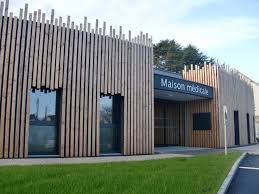GP
In the past ten years we have helped over one hundred medical doctors and physiotherapists to start a new life in France and almost all of them still work and live here! Some of them will gladly invite to observe for a day or a few days in their practice, in order to give you a sense of what it means to work in ‘La Douce France’.
Newcomers often think that it will be difficult to learn to speak French to an acceptable level. It is our experience, however, that this is hardly ever a problem.
We work alongside Emmanuelle Arnaud www.lefrancaisfaceaface.com, a professional teacher who offers an intensive training course of one or two weeks, adapted to your level and medical specialism.This is a one on one training.
After this training, most practitioners are ready to start their practice.
In France, general practitioners work alone or in groups in the so-called ‘Maisons Médicales’. These structures are often commissioned by the local authorities in order to group together local medical doctors, physiotherapists, homecarers and other disciplines who therefore will pay a minimal rent. In some areas the shortage is such that a tax exemption is granted to newcomers by the government for a period of five years. This is not the case in all regions, however.

In France, general practitioners are ‘libéral’, which means that you decide for yourself what you will do and how much you will work. If you are part of a group, it’s members will make arrangements on these subjects, but broadly speaking, you are in control of the number of hours you wish to work and of planning your consultations, house calls and annual leave. You are not required to provide a replacement in the case of taking annual leave or a day off. In a growing number of towns general practitioners are no longer required to be on duty, because there is a hospital with an emergency department nearby. If there is the need for practitioners to be on duty, this will be put in place in consultation with practitioners.
Sometimes, the local or regional authorities offer paid employment to general practitioners. This could be an interesting choice during the first few years, if you wish to be sure of receiving a steady income and becoming familiar with the way general practitioners work in France.
After registering with the ‘Ordre des Médecins’ http://www.conseil-national.medecin.fr/sites/default/files/questionnaireinscriptionordremedecins.pdf
you will receive your ‘numéro RPPS’ (which is still often called ‘numéro ADELI’). This number allows you to register with the Caisse Maladie (professional health insurance fund) as a healthcare professional. This will also cover personal basic health insurance for you and your family.
Next, you will register with the URSAFF, the fiscal organisation that will calculate your social security contributions. Finally, you will have to take out a professional liability insurance.

